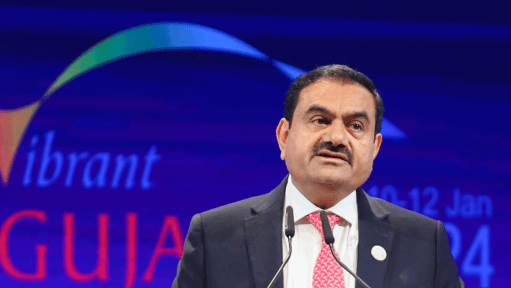
U.S. Indictment of Adani Group Chairman Gautam Adani and Nephew on Bribery Charges
Global Implications as Adani Faces Legal Battle Over $265 Million Corruption Allegations
An arrest warrant has been issued in the United States for Gautam Adani, the chairman of the Adani Group, and his nephew Sagar Adani. This development follows a grand jury indictment in New York on charges of bribery involving $265 million (approximately ₹2,029 crore). The case, alleging corruption to secure solar energy contracts, has sent shockwaves across global markets and political circles.
Understanding the Indictment
In the U.S. legal system, an indictment is a formal written accusation issued against a party charged with a crime. This process begins with law enforcement investigating an alleged offense and submitting evidence to a public prosecutor. If the prosecutor believes a felony (a serious crime) has been committed, they may present the case to a grand jury.
According to Black’s Law Dictionary, an indictment is “a formal written accusation” that initiates a criminal trial process if approved by a grand jury. This legal mechanism is crucial to ensure that charges have merit before proceeding to trial.
The Role of a Grand Jury
A grand jury is a body of citizens randomly selected from within the jurisdiction of the court. It comprises up to 23 members, with at least 16 jurors required to hear evidence and a minimum of 12 agreeing to issue an indictment. Unlike trial juries, which determine guilt or innocence, grand juries assess whether the evidence warrants a trial.
The proceedings are held in secret, ensuring confidentiality. If the grand jury concludes there is sufficient evidence, they issue an indictment listing formal charges against the accused. This step is mandatory in New York for felony cases, as per the state's legal framework.
The Allegations Against Adani
Lisa H. Miller, Deputy Assistant Attorney General for the Justice Department’s Criminal Division, accused Adani and his associates of bribing Indian government officials to secure lucrative solar energy contracts. The scheme, allegedly at the expense of U.S. investors, involves charges of corruption and fraud.
The indictment alleges a deliberate attempt to manipulate government processes and mislead stakeholders to benefit the Adani Group's renewable energy ventures.
Immediate Implications for Adani
Following the indictment, the case will move to the arraignment phase. During this stage:
- The charges against Adani and his associates will be formally communicated by the court.
- The accused will have the opportunity to plead guilty or not guilty.
- The court will decide whether to grant bail based on the nature of the charges and the risk of flight.
If Adani and his team plead not guilty, the case will proceed to a jury trial, where a final determination will be made.
Market and Political Fallout
The indictment has already caused significant ripples:
- Stock Market Impact: Adani Group’s stocks plunged by up to 20% following the news.
- Political Reactions: Indian opposition leaders, including Rahul Gandhi, have called for immediate action against Adani, alleging that the Indian government is shielding him.
Adani Group’s Response
In a statement, the Adani Group dismissed the charges as "baseless," accusing U.S. authorities of acting on unverified claims. The company has vowed to contest the indictment vigorously, asserting that it has always adhered to the highest standards of corporate governance.
What Happens Next?
The legal proceedings will now shift focus to the U.S. court system. Key stages include:
- Arraignment: Adani and his associates will formally respond to the charges.
- Discovery and Pre-Trial Motions: Both sides will exchange evidence and file motions to address legal and procedural matters.
- Trial: If the case is not resolved through a plea agreement or dismissal, a jury will hear the evidence to determine guilt or innocence.
The U.S. legal system operates on the principle of “innocent until proven guilty,” ensuring that Adani and his co-accused will have the opportunity to defend themselves.
Global Implications
This case highlights the growing scrutiny of international corporate practices, particularly when linked to allegations of corruption and fraud. As one of India's most prominent industrialists, Adani’s legal battle will be closely watched worldwide, with potential ramifications for India-U.S. relations and investor confidence in Indian businesses.
Conclusion
The indictment of Gautam Adani marks a pivotal moment in the intersection of business, law, and international politics. While the U.S. legal process unfolds, the case serves as a reminder of the stringent checks and balances in place to combat corporate malfeasance. For now, all eyes remain on the courtroom in New York as the next chapter of this high-profile legal drama begins.
For any enquiries or information, contact ask@tlr.ae or call us on +971 52 644 3004. Follow The Law Reporters on WhatsApp Channels